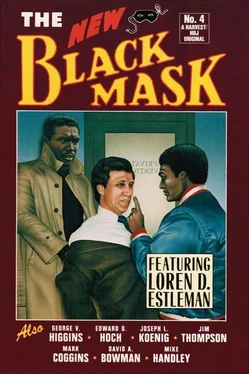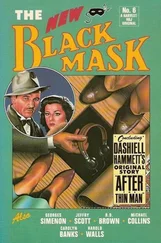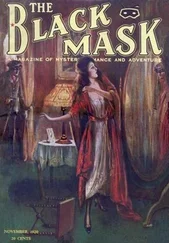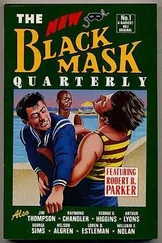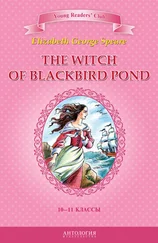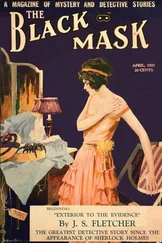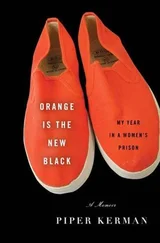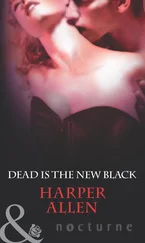Джордж Хиггинс - The New Black Mask (No 4)
Здесь есть возможность читать онлайн «Джордж Хиггинс - The New Black Mask (No 4)» весь текст электронной книги совершенно бесплатно (целиком полную версию без сокращений). В некоторых случаях можно слушать аудио, скачать через торрент в формате fb2 и присутствует краткое содержание. Город: New York, Год выпуска: 1986, ISBN: 1986, Издательство: A Harvest/HBJ book, Жанр: Детектив, на английском языке. Описание произведения, (предисловие) а так же отзывы посетителей доступны на портале библиотеки ЛибКат.
- Название:The New Black Mask (No 4)
- Автор:
- Издательство:A Harvest/HBJ book
- Жанр:
- Год:1986
- Город:New York
- ISBN:978-0-15-665483-8
- Рейтинг книги:3 / 5. Голосов: 1
-
Избранное:Добавить в избранное
- Отзывы:
-
Ваша оценка:
- 60
- 1
- 2
- 3
- 4
- 5
The New Black Mask (No 4): краткое содержание, описание и аннотация
Предлагаем к чтению аннотацию, описание, краткое содержание или предисловие (зависит от того, что написал сам автор книги «The New Black Mask (No 4)»). Если вы не нашли необходимую информацию о книге — напишите в комментариях, мы постараемся отыскать её.
The New Black Mask (No 4) — читать онлайн бесплатно полную книгу (весь текст) целиком
Ниже представлен текст книги, разбитый по страницам. Система сохранения места последней прочитанной страницы, позволяет с удобством читать онлайн бесплатно книгу «The New Black Mask (No 4)», без необходимости каждый раз заново искать на чём Вы остановились. Поставьте закладку, и сможете в любой момент перейти на страницу, на которой закончили чтение.
Интервал:
Закладка:
The New Black Mask (№ 4)
“Loren D. Estleman: An Interview,” copyright © 1985 by Loren D. Estleman. “Blond and Blue,” copyright © 1986 by Loren D. Estleman. “The Sins of the Fathers,” copyright © 1986 by George V. Higgins. “The Other Eye,” copyright © 1981 by Edward D. Hoch. “The Scoop,” copyright © 1986 by Joseph L. Koenig. “There’s No Such Thing as Private Eyes,” copyright © 1986 by Mark Coggins. “Pincushion,” copyright © 1985 by David A. Bowman. “Psychodrama,” copyright © 1986 by Mike Handley. “The Ripoff,” copyright © 1985 by the Estate of Jim Thompson.
Loren D. Estleman: An Interview
Loren Estleman is a relative newcomer among hard-boiled detective novelists. His first book was published less than a decade ago. He has a background in journalism, having written for three Michigan newspapers, and he lives near Detroit, the beleaguered city Amos Walker calls home.
While he is best known to New Black Mask readers for his novels featuring either Walker or the professional hit man Peter Macklin, Mr. Estleman has also distinguished himself as a writer of Westerns, winning the Western Writers of America Golden Spur Award for his novel Aces and Eights, based on the life of Wild Bill Hickok as it is revealed during the trial of his murderer.
Critic Robin Winks has remarked that he reads Loren Estleman “for the sheer joy of seeing the phrases fall into place.” A prose stylist who believes that some of the best writers in the English language take private eyes as their subjects, Mr. Estleman does not find it necessary to apologize for his material.
NBM: How long had you been writing before your first novel, The Oklahoma Punk , was published?
Estleman: Eight years.
NBM: So you started when you were sixteen?
Estleman: No, actually I was about fifteen.
NBM: And writing with a view toward being a professional writer?
Estleman: Oh, yeah.
NBM: Publishing?
Estleman: Yep.
NBM: Where?
Estleman: The first place I sent a short story, when I was fifteen, was Argosy magazine. So I had my mind on the pulp fiction market even then.
NBM: What was the attraction of the pulps?
Estleman: It seemed to be my kind of fiction. I had tried, and now and then I still try, to write one of these things that takes place entirely in someone’s head, and I found that it just wasn’t for me. I write stories about people who do things.
NBM: Action and adventure?
Estleman: Right.
NBM: The pulps are typically thought of as being a man’s reading material.
Estleman: Yeah, to begin with, although there was a time when there were fully as many women readers as men — at least of the Westerns. Around thirty years ago men, women, and children were gobbling up Westerns by the millions.
NBM: Do you have any sense now that you are writing for a male audience?
Estleman: I am constantly interested in finding out how I am going over with a female audience. It always surprises me, and maybe it shouldn’t, to learn that I have quite a large female following for the Amos Walker series. A lot of my colleagues have asked me how my Walker series does with women, because he’s kind of macho as opposed to the usual modern Alan Alda kind of hero. My answer is always the same: I seem to be going over quite well with women. What captures the female audience is Walker’s type of humor. He doesn’t take himself too seriously. I think that is an important ingredient in what I call the quintessential American hero, the complete revolutionary who does not take authority, others, or himself too seriously.
NBM: You have written a substantial amount of Western fiction. Why Westerns?
Estleman: I think I recognized early on that the Western is a purely American form, and it was a form that I could relate to more than, say, the European style of both living and writing. There are definite similarities between the detective form and the Western form. One of them is the revolutionary hero I talked about. The cowboy myth, if you will, the man alone, the man outside — that goes back to our own revolutionary beginning. Whether I’m writing about Amos Walker, who lives on the modern urban frontier, or a character named Page Murdock in one of my books set on the Western frontier, I’m basically writing about the same kind of person, though I am using somewhat different methods and describing different forms of civilization. Nevertheless, it’s the same person underneath it all. The idea of the lone revolutionary-type hero has produced a purely American form. Too often we overlook in our fiction Ned Buntline, Prentiss Ingraham, Owen Wister, Jack Schaeffer, Louis L’Amour, and some of the more sophisticated Western writers. You can draw a straight line from the Street & Smith Buffalo Bill stories and Ned Buntline stories right to Street & Smith’s pulps of the twenties and thirties and forties and then to today’s paperback novels. That type of story is beginning to make itself known in the hardcovers now.
NBM: There’s a classic affinity between the Western and mystery fiction.
Estleman: There are definite differences too. The mystery is more complex in the way it deals with nature and a bit more cerebral because of it. I don’t mean puzzles of the Agatha Christie type. Detectives depend on their minds a little bit more than their physical reactions.
NBM: The setting of detective fiction is certainly more complex.
Estleman: The settings are basically different, and yet somehow the same too. Both are set in a kind of a gray-area frontier where the only real law is the law that a man makes for himself.
NBM: If my count is right, your fourteenth book will be published in spring 1986.
Estleman: Actually my twenty-second. If you ask me about that, I will say that I remember writing every one of those twenty-two books, but I don’t remember writing twenty-two books.
NBM: You have series novels with at least three publishers. For Houghton Mifflin you do the Amos Walker mysteries; for Mysterious Press you do the Macklin series; and for Doubleday you do the Westerns. Have you ever written under a pseudonym?
Estleman: I never have. Never felt the urge to. I never really trusted it in the people that I read because I always felt that what they wrote under a pseudonym was something that they didn’t put their heart and soul into. I always thought that if I ever did write under a pseudonym, subconsciously I would not make it as good as if I were putting my own name on it. I’m much more comfortable with my own name, because knowing that my reputation is going to depend forever on that book, I’m going to make it as good as I can.
NBM: Is there one of your series characters that makes your heart beat a little faster, that you anticipate writing about with a little more excitement?
Estleman: Yes. When I’m writing a Western I’d rather be writing a mystery, and vice versa. It always works that way. That’s why we’re paid. But you’re always thinking ahead to the next project wishing you were doing something else, because when you get to the nuts and bolts, it’s not as romantic as it was when you first had the idea. They all make my heart beat faster, though, when the writing’s going well. I may be more comfortable in the Western form. I can’t really tell you why. Maybe it’s because it’s a little bit freer, and I can depend on those reactions a little bit more. And you can use a little bit more action and not feel as if you’re just greasing a story up. That’s how things were done out West; they were men of action. But I certainly wouldn’t give up the mystery for anything. Any time I begin to contemplate a new Walker book, it’s like seeing an old friend. As long as that continues, I’m going to continue to do it. If I ever find myself writing a Walker book just to write a Walker book, that would be the time to quit that series and go on to something else. It has to be enjoyable for me or it’s not going to be enjoyable for my readers.
Читать дальшеИнтервал:
Закладка:
Похожие книги на «The New Black Mask (No 4)»
Представляем Вашему вниманию похожие книги на «The New Black Mask (No 4)» списком для выбора. Мы отобрали схожую по названию и смыслу литературу в надежде предоставить читателям больше вариантов отыскать новые, интересные, ещё непрочитанные произведения.
Обсуждение, отзывы о книге «The New Black Mask (No 4)» и просто собственные мнения читателей. Оставьте ваши комментарии, напишите, что Вы думаете о произведении, его смысле или главных героях. Укажите что конкретно понравилось, а что нет, и почему Вы так считаете.
